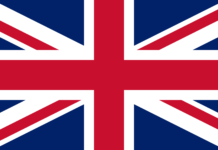The Black Sea shore, one of the areas with a high risk of contamination with COVID-19
Sea shore resorts are the most crowded places in the country at this time of the year and the risk of contamination is high. Still, measures imposed by authorities to prevent and limit the spread of the new coronavirus are often ignored.
In crowded areas, especially on the quays, wearing a mask is compulsory after 18:00 o’clock, together with maintaining the social distance rules that have already been imposed in the gardens of the restaurants, on the beaches, in shops or hotels. Not all tourists respect norms, which could foil the common effort to overcome the crisis generated by the spreading of the virus.
Authorities check hundreds of businesses every weekend and, only last night, they applied 185 sanctions of around 270 000 lei, 33 of which for not respecting measures of individual protection.
Population of Romania continued to decrease in June
The population of Romania continued to decrease in June 2019, according to data published today by the National institute of Statistics. Therefore, the natural population decrease grew, being 1,4% higher compared to the similar month of last year. The number of newborn babies was with 1,263 lower, compared to June 2019, while the number of people who died was higher with 544 people. Authorities reported 6,287 deaths. Also, the statistic has shown that, beginning with March, there were some consecutive months in which the birth rate dropped.
Starting at midnight, Romanian citizens who arrive in Spain will have to quarantine for two weeks
Starting at midnight, Romanian citizens who arrive in Spain will have to quarantine for two weeks. The decision has been taken by the government in Madrid, while the number of coronavirus cases is rising. The quarantine will take place at the person’s home or in a place offered by the Spanish authorities for this purpose. The updated list of countries who impose restrictions to Romanians can be found on the website of the National Institute of Public health.
Alexandra Ioniță, RADOR







